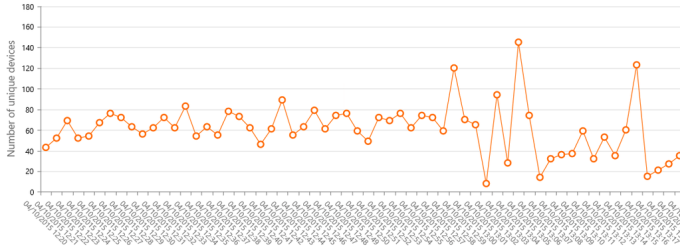Microsofties Were All Over That New Windows 10 Build
Windows Phone users were understandably interested in the new code, as it represents Microsoft’s most complete vision to date of how Windows 10 — the company’s attempt at a universal platform — will update their handsets. (Sadly, TechCrunch’s Lumia 929 remains unsupported, so if you spot a tech blogger crying in the corner, I just need a minute.)
Microsoft’s Windows 10 célèbre Gabe Aul released a chart detailing how many users made it to build 10051 on a per-minute basis, with data covering about an hour. The pace, as you can see below, works out to about one user per second making it to the new code:

As with many beta releases, there were rollout issues with the new code. Those have since been quashed, and the update appears to be Full Steam.
Now, to the numbers. 60 successful upgrades per minute is 3,600 per hour, or north of 86,000 per day. Of course, the pace of upgrades will slow over time, but those are sufficient rough run-rate calculations.
Is 60 per minute quite a lot, or not very much? Microsoft has picked up a few million Windows 10 testers, but how many of that group are Windows Phone users isn’t clear. And, the new numbers recorded above only include Windows 10 testers who use Windows Phone and who opted into a faster build release cycle. So, it’s a modest pool to pull from. I’d call the numbers healthy, but not ecstatic.
Microsoft continues to release Windows 10 builds even as Build, its developer conference, quickly approaches. I incorrectly presumed that the company would start to constrain releases to ensure that it had plenty of new material for the event. It seems instead that Microsoft wants to keep the kitchen open all the way to closing time.
A question for you, dear reader: If you did upgrade, are you going to stay on the new code, or revert back to Windows Phone and wait for Windows 10 to get another notch closer to production quality?

